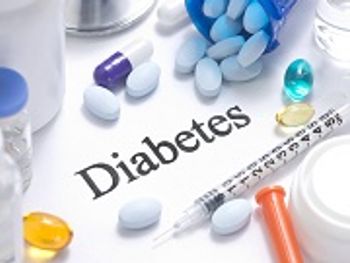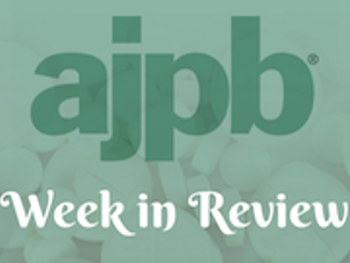
Compound derived from olives increases insulin secretion.

Compound derived from olives increases insulin secretion.

Benzidine-based dyes commonly used in pharmaceuticals are also found in popular candy, which may lead to adverse health issues.

Women with polycystic ovary syndrome 4 times as likely to develop diabetes.

Lifestyle management plans for lowering blood pressure are also highlighted in the guidelines and include suggestions on weight loss, nutrition, and increased physical activity.

The risk of irregular and rapid heartbeat increased in type 1 diabetic patients who had renal complications and poor glycemic control.

A cocoa-derived compound improved the function of beta cells in diabetes patients.

Top articles of the week from The American Journal of Pharmacy Benefits.

Benefits of GLP-1 agonists may exceed diabetes and obesity treatment.

A look at the top stories in pharmacy last week.

Liraglutide (Victoza) may reduce the risk of cardiovascular events for patients with type 2 diabetes.

The American Diabetes Association recommends that patients have their blood pressure checked at every visit to their healthcare provider.

Researchers are continuing to pursue cost-effective ways to serve patients with diabetes efficiently.

Health care professionals interested in improving outcomes for patients who have diabetes may find an article published in the September issue of Current Diabetes Report interesting.

Patients with type 1 or type 2 diabetes may be at an increased risk of certain preventable conditions.

The guidelines provide a few updates to the pharmacologic management of the disease.

Top articles of the week from The American Journal of Pharmacy Benefits.

Aurobindo Pharma USA delivers a broad line of generic pharmaceuticals, leveraging vertical integration and efficient controlled processes to ensure value to our customers and high quality medicines to health care professionals and patients throughout the United States.

Amring is committed to putting people first in all it does, providing high quality generic medications and excellent customer service at a reasonable cost.

As of 2015, 30.3 million Americans—9.4% of the US population—have diabetes, and another 84.1 million Americans have prediabetes, according to a recently released report from the CDC.

FDA officials noted that the human insulin analog met all necessary regulatory requirements for approval, but the approval is tentative pending any patent issues that are yet to be resolved.

JDRF and IBM partner to develop data-driven methods to predict the onset of type 1 diabetes.


Pancreatic islet cells implanted under the skin may normalize blood glucose levels in type 1 diabetes patients.

Patients who were adherent to oral diabetes drugs spent $500 less on health care compared with nonadherent patients.

Patients who were not adherent to oral diabetes drugs had 1.3 times higher medical costs.